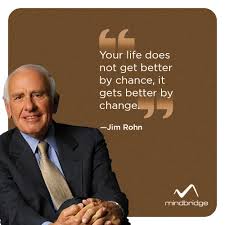“No one can make you feel inferior without your consent.” – Eleanor Roosevelt
Isn’t it funny how the older we get, the more we uncover truths about ourselves that seem glaringly obvious in hindsight? Yet, when these realizations hit, we can’t help but wonder why it took so long to connect the dots. Has that ever happened to you?
This week, I had one of those moments. I realized that, as a kid, I never felt an overwhelming need to belong—or at least, that need expressed itself differently compared to others around me. I wasn’t driven by the pressure to conform just to fit in or boost the morale of the group. I was okay (sometimes reluctantly) with standing apart and being the outlier in the room.
Now, I’m sure some who grew up with me might disagree. They’d probably recall moments where I sought friendship and acceptance, and to be fair, adolescence is universally accompanied by insecurities. But in my memories, I never recall holding back when I believed a question needed asking or an idea could improve the outcome.
After writing those thoughts, I shared them with my wife. In true fashion—like she has for the 30 years we’ve known each other—she gave me honest feedback: “That sounds a little braggy.”
She’s right, of course. Reading this from an outside perspective could paint the picture of someone overly self-assured. But what I didn’t mention is that being the one who consistently speaks up can be isolating. No one gravitates toward the “know-it-all.” No one eagerly seeks out the person who can’t seem to let things slide. I never intended to be that person. I wasn’t motivated by the need to be right—I just wanted the best possible outcome. Whether it was winning the next game, scoring higher on a project, or simply understanding the reasoning behind decisions, my focus was always collective success, not personal validation.
I don’t need to be the one who’s right—I just need to ensure that we are.
The Teenage Lens
Spending time with teenagers, as many of us do, exposes how visibly their fears and insecurities play out. They’re acutely aware of how peers, teachers, and coaches perceive them. And in an age where online commentary is constant, the judgment of strangers carries significant weight.
So how do we help these young minds embrace their authentic selves and value their individuality?
Here are four actionable ideas we can implement to encourage self-worth and confidence in teens (and ourselves):
1. Class Participation as a Daily Habit:
Imagine if students earned two points each day simply for raising their hand to ask a meaningful question or contribute a thought that advances the discussion. Teachers can set the standard for what qualifies as “meaningful” and reinforce that participation matters. This not only cultivates curiosity but reinforces the value of their voice.
2. Words of the Day:
What if, before each practice or meeting, 1-3 team members were responsible for sharing a quote of the day? They’d explain why it resonated with them and how it could inspire or uplift the group. This simple task fosters leadership, reflection, and a sense of contribution.
3. Public Self-Reliance:
Parents—how often do we speak for our kids in public settings? Ordering at restaurants, correcting a mistake in their meal, or stepping in to handle issues that they could address themselves? What if we stepped back and encouraged them to advocate for their needs directly? Something as simple as, “Excuse me, I asked for scrambled eggs, but these are over-easy. Could they be remade, please?” reinforces autonomy and confidence.
4. Daily Affirmations of Value:
Before school drop-off or at the start of practice or class, imagine if the last or first words teenagers heard were: “You have value. Your thoughts and opinions matter. Speak up. Participate. Even if not everyone agrees, your courage will be noticed. We respect those who share their voice.” Repetition of this message solidifies belief in their worth.
Not everyone will resonate with their words, but the courage to speak up fosters growth. And as adults, it’s our responsibility to model this behavior and celebrate it in others.
Let’s create an environment where self-worth isn’t just an idea, but a daily practice—one action at a time.
Interested in Coach Rogers’ book on college recruiting? https://coachmattrogers.com/book-significant-recruiting/
Want to schedule a free 30-minute college recruitment strategy session with Coach Rogers? https://coachmattrogers.com/contact/#






